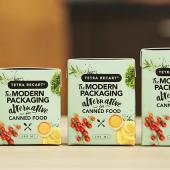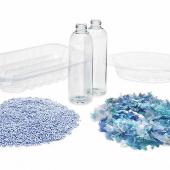Sustainability: Let's find out who it is good for and we shall solve everything
Editorial by Stefano Lavorini
Once upon a time there was sustainability... and there will be once again in the "new" world after Covid-19. Rather, although the epidemic phase is still far from over, environmental issues in general and the circular economy will remain at the centre of government and industry agendas, exacerbated by consumers' growing emergency discomfort in the face of an increasingly uncertain future.
The masses for mourning, isolation and distancing between people, the expectations and hopes for change, move many to instinctively hope to distance themselves from the "ordinary nonsense", in search of a new sense of things, a new alliance with life.
I am skeptical that "nothing will be the same as before" and that from this point of view the ecological transition can take priority; the economic urgency will dominate things in the coming months (you can be sure of it!), but nevertheless the problem of focusing everyone's responsibilities on the environment, both nationally and globally, can no longer take second place.
In fact, as Paolo Rumiz writes, "Nature invites us to a new marriage".
We heard it repeated, in a well articulated and motivated way, during the two days of the Forum "Packaging Speaks Green" which, almost mockingly, took place on February 20 and 21 in Bologna, coinciding with the lockdown of the first red zone in Italy.
And so, while we were talking about social, environmental and economic sustainability, we began to come to terms with the threat of the unknown, a coincidence that sounds almost like the tolling of bells as a call to muster.
I am left with more questions than certainties about my participation in the Forum and so, summing things up, I could say that it was a pleasing experience. Indeed it is precisely the exercising of methodological doubt, as Descartes says, that allows us to put to the test the knowledge in our possession and thus reach certainties more difficult to doubt.
And when it comes to Sustainability, it is clear that we are entering upon a complex and treacherous terrain, which offers itself to multiple and often partial and discordant readings, also because many are the economic interests at stake, not infrequently underestimated.
Not only that: Sustainability is one of the factors of change underway and must therefore be related to the development of e-commerce, changes in consumption patterns, the compression of industry margins, and the digitalization of production.
The fact is that the world of packaging is doing a lot, indeed a lot, and not in words, as I have been able to appreciate and as you can also read leafing through this issue.
In fact, this is the feature that unites material and packaging, but also machine manufacturers, with a view to collaboration that embraces the entire supply chain.
In this sense, it is significant that the Forum was organized by Ucima and Fondazione Fico, to underline how necessary it is to talk about sustainability not only in relation to packaging but also to its contents.
Also significant, however, is the support for the event offered by a group of companies particularly committed to these issues, such as Aliplast, Coesia, Ima, Herambiente, Ipack-Ima, Marchesini Group, Robopac, Sacmi, Tetra Pak.
An appointment that could become the benchmarketing for the future of a sustainable packaging.
Many, therefore, the proposals in the direction of a packaging that purposefully uses less material, is biodegradable, compostable, recyclable, produced with materials derived from renewable sources, reusable …
This goes from polyethylene produced on an industrial scale from sugar cane grown on marginal land, which has the same characteristics as that of fossil origin, to bottles made 25% from material recovered from the oceans, from high barrier OPP film, to smart packaging that can "talk" about sustainability to consumers.
Many solutions aimed at minimizing the environmental impact - because there is no one "right packaging" - each one to be evaluated according to the application, to be validated through LCA, i.e. analysis of the impacts of all aspects related to footprint, water-use, etc. associated with the local collection, sorting and recycling system.
This latter aspect is straightforward: it is necessary to look at the present if we want to build the future, which means improving the waste treatment facilities, which, in general terms, is not up to scratch.
It is not enough to "invent" new compostable materials, but it is equally necessary to create an infrastructure for the management of this type of product.
It would also be essential to develop a new way of managing plastic waste - and not conceive of a Plastic Free world! - because at the moment plastic cannot be dispensed with.
And what about the control systems against the dispersion of plastics in the environment, which exist in Europe but not in other geographical areas?
The word "recyclable" itself has varied meanings in different parts of the world, and how important it would be to achieve normalization.
In short, environmental sustainability - as has been said - is a risk that must be managed with a scientific approach.
Innovation in packaging is difficult on a global scale and for this reason it is necessary, case by case, to build a puzzle by putting all the pieces in their place, without forgetting that packaging must continue to guarantee the correct performance in terms of product protection and service content for consumers. These remain the primary functions of this means, irreplaceable in the fight against food waste.
Let us remember that in 2050 the world population will be 10 billion people and this will mean food and water shortages, and we won’t be able to afford (we cannot even do so now) to lose significant percentages of agricultural products.
Optimal packaging is that which meets all product requirements while minimizing environmental impact and optimizing the economic and social aspects.
Here machine manufacturers are working on a sustainable approach taking into account, first and foremost, corporate social responsibility (i.e. the environmental impact of their activities) and the need to deepen their knowledge of packaging materials, also thanks to partnerships with manufacturers. Objective: to develop and improve their offer in harmony with users in order to make innovation that serves the environment.
The challenge for a more sustainable world is open. Here, then, are some examples, which come from the world of machines and have the color green as a common denominator: the 100% paper pouch, flexible/rigid hybrid packaging, use of ultrasonic sealing systems for flexible packaging, machines with lower energy consumption, extensive use of robotics instead of pneumatics, optimized solutions for wrapping bundles but also palletized loads; and again, facilities capable of printing biomaterials, biocomposites, production lines for PET bottles from recycled flakes, electron beam sterilization systems...
Sustainability is a complex issue, not only for companies but also for the consumer. It is therefore necessary to put consumers in a position to clearly understand what, in particular, the environmental impact linked to the choice of packaging actually is.
How can we expect consumers to have technical expertise on the real characteristics of different materials, when - let's be honest - this culture is sometimes even lacking among professionals?
Of course, listening to the surveys on the subject, it is the consumers themselves who complain that they do not have the necessary information and consequently there is much to be done in this direction. However, as a preliminary step, we need to start by clarifying at a regulatory and production level what is meant by Sustainability.
We need to give consumers the tools of knowledge: today there are many, all too many, misunderstandings that drive them away from the reality of the facts.
But how can we make them understand that plastic is fantastic, cheap, light, ductile, durable, and that this is why its use will increase in the future? That maybe it will be a different plastic, but still plastic?
In general terms, it’s not that people don't want packaging, they want it different, but… take note!: even if packaging is an active lever, if sustainability and packaging are points of interest for the consumer, the consumer is, in most cases, not willing to pay more for more sustainable packaging.
We are at the squaring of the circle. But we will raise the subject again.
Note. The quotes are taken from the Poems of Emily Dickinson.
 The packaging world responded positively to the call of Packaging Speaks Green, the international forum dedicated to sustainability in the packaging sector, organised by UCIMA and the FICO Foundation. Two days of debates, discussions and proposals on the need to make the packaging industry more sustainable, with 35 speakers from all continents, 450 participants from twenty countries and 40 accredited journalists. packagingspeaksgreen.com
The packaging world responded positively to the call of Packaging Speaks Green, the international forum dedicated to sustainability in the packaging sector, organised by UCIMA and the FICO Foundation. Two days of debates, discussions and proposals on the need to make the packaging industry more sustainable, with 35 speakers from all continents, 450 participants from twenty countries and 40 accredited journalists. packagingspeaksgreen.com


















